
Future-proofing your EU funding strategy for the post-2027 period
Preparing for EU funding for the post-2027 period? Learn what organisations can do now to align with policy shifts, build partnerships and strengthen readiness.
When speaking about Horizon Europe, the EU funding programme for research and innovation, it’s not typically associated with small and medium-sized organisations. However, even when you are not one of the “big players” and haven’t participated in the EU programmes for research and innovation yet, Horizon Europe offers a variety of opportunities for non-profit organisations and entities to join projects, to contribute to innovative practices and to bring in the expert insights regarding your particular beneficiary group into important research projects. Discover here what that can be in concrete.
When it comes to progress in research and innovation, it’s not surprising that big consortia of big research institutions, companies or other entities indeed play the main role. However, depending on the specific Call for Proposals, a contribution of smaller entities can make an important difference. Of course, this is under the condition that you have qualified staff to carry out the project, who are experts in the field you would like to apply for. It’s important to know that Horizon Europe seeks excellence and the competition for funds is pretty high, so submitting a mediocre proposal is not a viable option.
This article focuses on opportunities for non-profits such as small and medium-sized NGOs and public authorities who would like to accomplish research and innovation projects with a societal, citizen and/or environmental focus. The article does not directly cover SMEs (there is a separate article about SME funding opportunities in Horizon Europe and other programmes), whereas the general aspects also apply to SMEs.
Concrete funding opportunities exist for NGOs and public authorities such as towns and municipalities to bring in the voice and needs of their beneficiary group and citizens, as a partner in a project, for example by conducting studies, surveys or focus groups.
It is a general objective that research and innovation outcomes should benefit society. Therefore, the consideration and inclusion of societal aspects into funded projects is very important. Societal aspects are generally enshrined in Horizon Europe with ‘Social Sciences and the Humanities (SSH)’ as a cross-cutting subject. For example, certain innovations to increase the efficiency of production systems have implications for workers and can cause a shift of skills required on the labour market. Or in health research non-medical aspects such as the socio-economic situation and the environment play a role. This means that the inclusion of social sciences and humanities expertise is a must in certain Horizon Europe Calls (these topics are “flagged for SSH”).
Funding for projects with a focus on society, political systems and citizens is most clearly seen in Horizon’s ‘Cluster 2 – Culture, Creativity and Inclusive Society’. There, for example projects related to social dialogue, social inclusion, citizen engagement and gender equality, but also to fighting extremism and disinformation are being funded. On the Cordis website, the EU results platform for research and innovation projects, you can find some examples of previously funded projects in the field ‘Challenges to democracy in Europe’ and for ‘Social Innovation’ for inspiration.
Funding for NGOs and public authorities wishing to participate in society, citizen or environmental and climate projects can also be found in other parts of Horizon Europe, in particular the clusters of pillar 2 (‘Global challenges and European industrial competitiveness’ – comprising 6 thematic clusters in total:
Moreover, the Horizon Europe “missions” offer funding possibilities for NGOs and public authorities. Five missions have been set up to support a European green, healthy and inclusive transformation. Each of the missions runs until 2030 and the funding areas are:
In case you have a project idea, and depending on your previous experience and a solid operational and financial capacity, you can either lead a project as a coordinator, or be a project partner carrying out specific tasks within work packages. For most funding applications within the Horizon Europe clusters, you’ll need partners. In principle a consortium has to consist of minimum 3 independent organisations from at least three EU countries or countries associated to Horizon Europe.
If you plan to be the coordinator for a project but still need more project partners or if are simply interested in being a project partner within an open Call for Proposals, you can make use of the Funding & Tender Portal partner search tool. In order to enter information for your partner search or for proposing yourself as a partner, you need a user account (i.e. an “EU Login” account). Then, you can enter your information for the specific Call for which you are searching a partner or in which you would like to participate as a partner. For many Calls, the European Commission and Horizon’s thematic networks are organising information sessions about the Call, sometimes with a dedicated match making event or they may even offer a matchmaking platform.
When you are not (yet) up to the rather extensive application process that Horizon Europe multi-beneficiary grants entail, so-called ‘cascading grants’ might be for you. Cascading grants are grants that are provided by on-going Horizon Europe projects which provide smaller sub-grants to beneficiaries for certain purposes. Depending on the individual openings, you would not always be required to build a consortium, meaning that you could be the single beneficiary, which simplifies the application and implementation of the project. Two examples (at the time of writing of this article):
The Pathway to Resilience project aims to strengthen climate resilience by enhancing the capacities of regional and local administrations to become more climate resilient. One pillar of the project’s strategy is the engagement of citizens and other stakeholders in the process. Pathways2Resilience is giving sub-grants to at least 100 regions or communities throughout two Calls. In the first Call (deadline in May 2024), grants of up to 210,000€ were available for 40 regions and communities to implement projects of max. 18 months that address climate resilience through the development of climate adaptation pathways, e.g. adaptable trajectories which build on existing data and projections of climate change risks.
Within the HUMUS project (Healthy Municipal Soils), municipalities and regions are supported to protect and restore soil health via sustainable soil management. As in the previous project example above, the active involvement of citizens and stakeholders in decision-making is important. Training about soil health and exchanges of best practices are also being organised within the project. In HUMUS’ first Call (deadline in April 2024), funding was available for 20 public entities or entities governed by public law. Funded projects are expected to develop e.g. participatory processes on soil health and sustainable land management at local and/or regional level, and the development of regional/local action plans. The selected sub-projects receive up to 30,000€ per grant for a max. duration of 12 months.
Horizon Europe offers some funding opportunities for non-profits such as small and medium sized NGOs and municipalities or towns. Whereas acting as the coordinator of a project consortium may still pose a considerable challenge, being one of the project partners within a consortium can be a possibility to bring in your valuable know-how and the particular view of your beneficiary group. Small-scale grants issued by larger Horizon projects (cascading grants) may also be an option. All in all, participation in Horizon Europe can be an enriching experience for your organisation and lead to more funding and cooperation opportunities in the future.
—
Are you planning to apply for Horizon Europe funding? Check out the new free resource to help you write clear, evaluator-aligned proposals that score higher: Horizon Europe Strategic Proposal Language Toolkit
Need support with your Horizon Europe proposal? Whether you are looking for an expert review, tailored feedback, or full proposal-writing assistance, feel free to get in touch to discuss the best way I can help.
Need help for identifying a possible funding opportunity for your project idea and/ or for writing a project application? Contact me or book a free orientation call.
You don’t want to miss any new blog articles? Sign up for the EU Funding Newsletter.

Author: Astrid Mechel
https://eufundingconsulting.eu
Hello, I am Astrid Mechel and I work (for the most part) with small and medium sized organisations who aim to access EU funding. It is my goal to help discovering suitable EU project funding possibilities and to provide support to submit a high-quality grant application. My main thematic focus is on grants for research and innovation, environmental sustainability as well as on social inclusion and participation.
Read more articles here:

Preparing for EU funding for the post-2027 period? Learn what organisations can do now to align with policy shifts, build partnerships and strengthen readiness.

EU project funding for nonprofits: Discover 6 misconceptions that hold organisations back and how to turn them into opportunities for growth and impact.

Applying for EU funding can be a complex and challenging. This article offers 12 practical tips to help you avoid the most common stumbling blocks.
Online Workshop
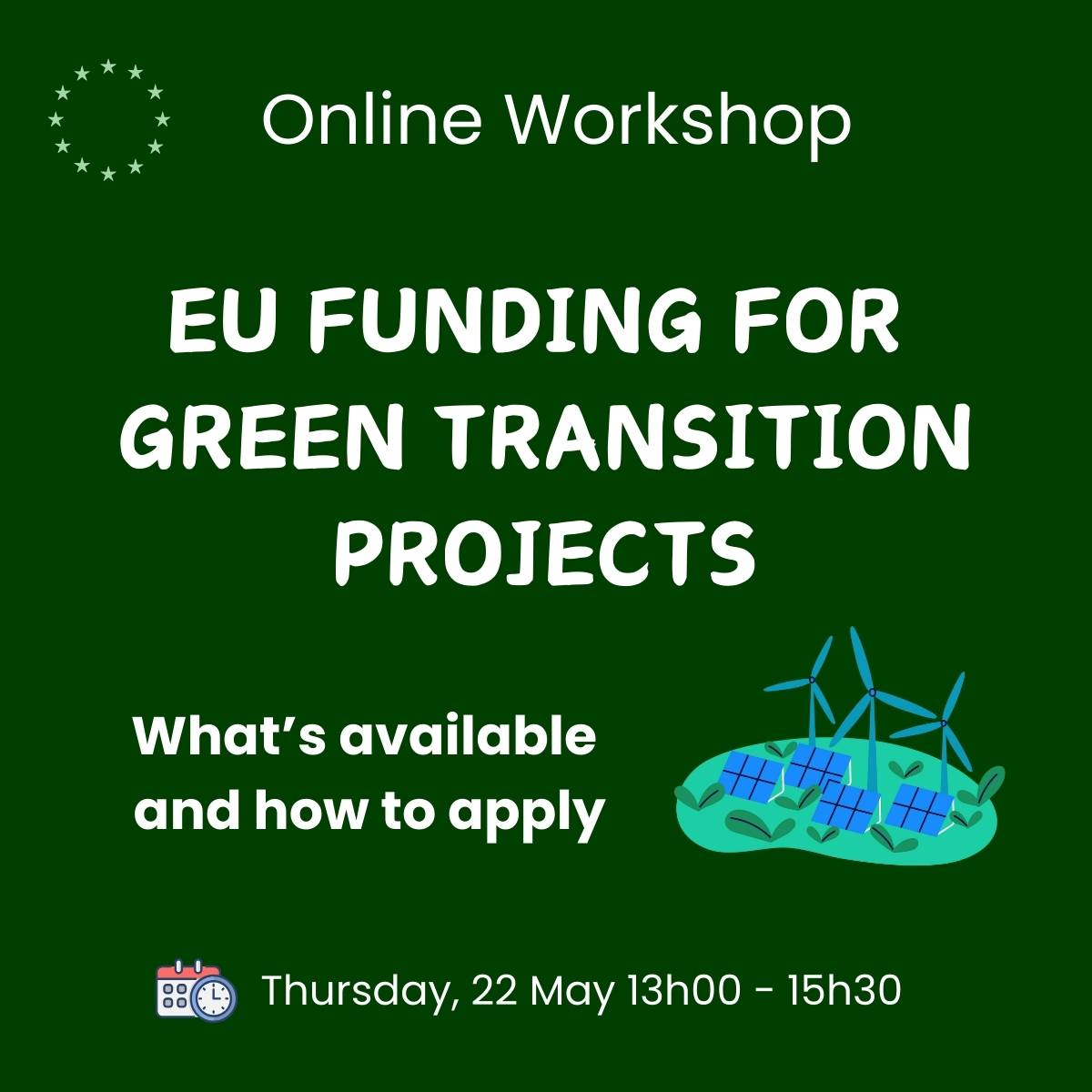
Interactive Live Workshop
On 22 May 2025 from 13h00-15h30
Registrations are closing soon
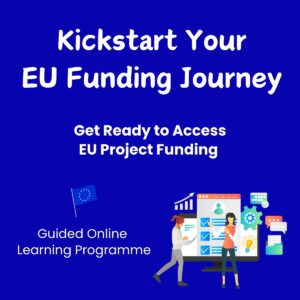
Curious about EU funding and how it could support your next project? Join the new live programme round for a compact and easy-to-follow way to get started with EU funding.
Key Terminologies – Application Guidance
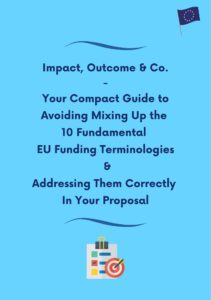
This guidance compares and compare and clarifies the 10 key terminologies within an EU funding application. How should you address them in your proposal, and what kind of information belongs to which one of them?
Online Workshop on 6 November!
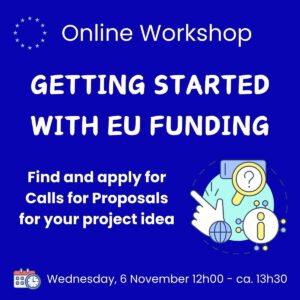
The workshop “Getting Started with EU Funding” is for participants with no or very limited experience in EU funding. Discover what kind of projects the EU is funding, the requirements and how you can apply for funding in your thematic field.
EU Funding Checklist
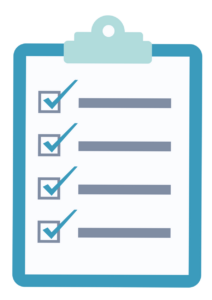
Do you have a new project idea and are wondering if EU funding could be available for your project?
This checklist will guide you through the most important questions to be considered when applying for EU project grants and includes some further suggestions how you could adapt your concept to be more in line with EU expectations regarding fundability.
Get the brand new upgraded guidance booklet (free offer):
Your compact guide on how they work and how your organisation can apply for funding
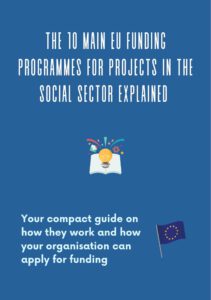
Find out which 10 EU programmes offer grants for projects in the social sector, what the conditions for funding are and how you can apply.
Online Workshop
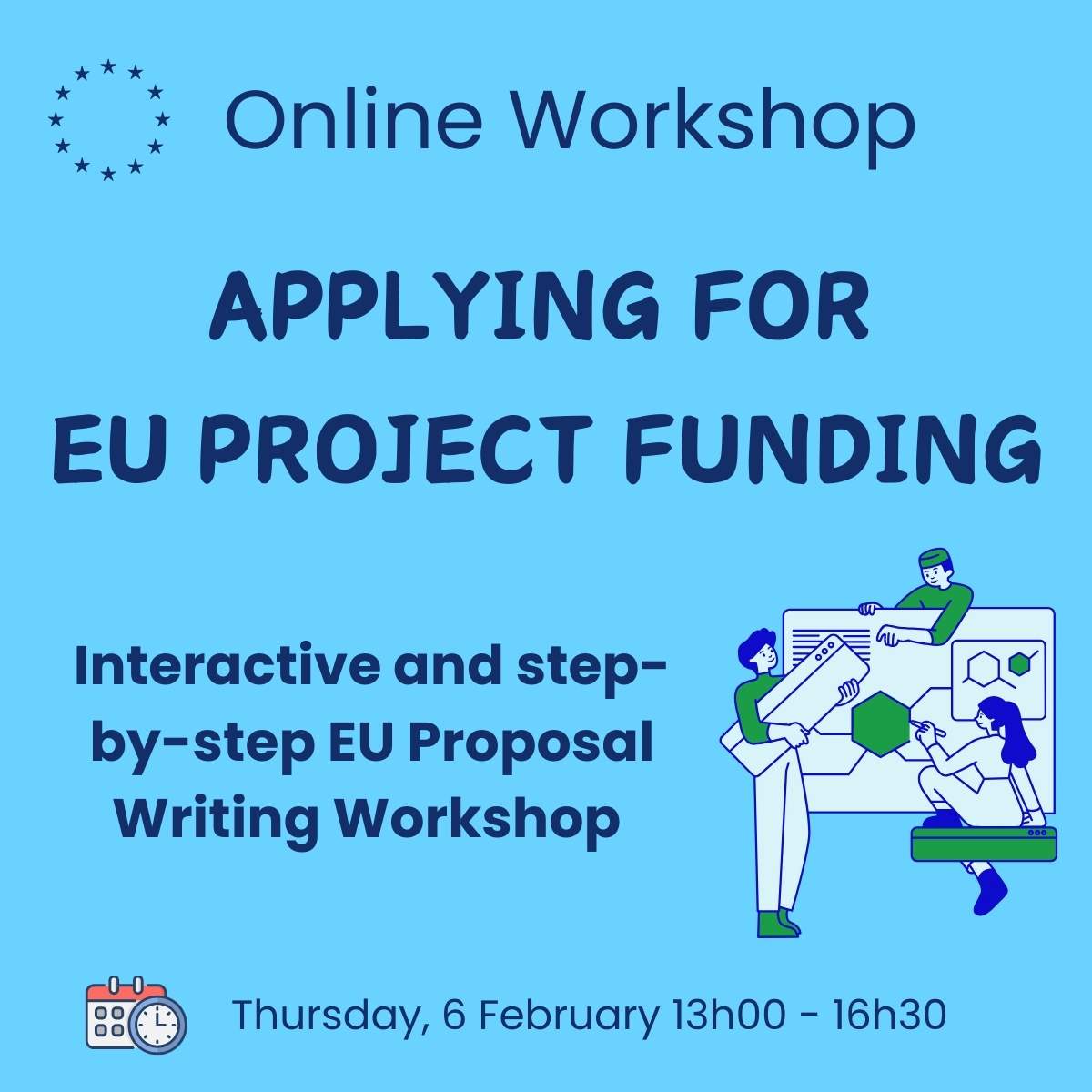
Interactive and step-by-step EU Proposal Writing Workshop
On 6 February 2025 from 13h00-16h30